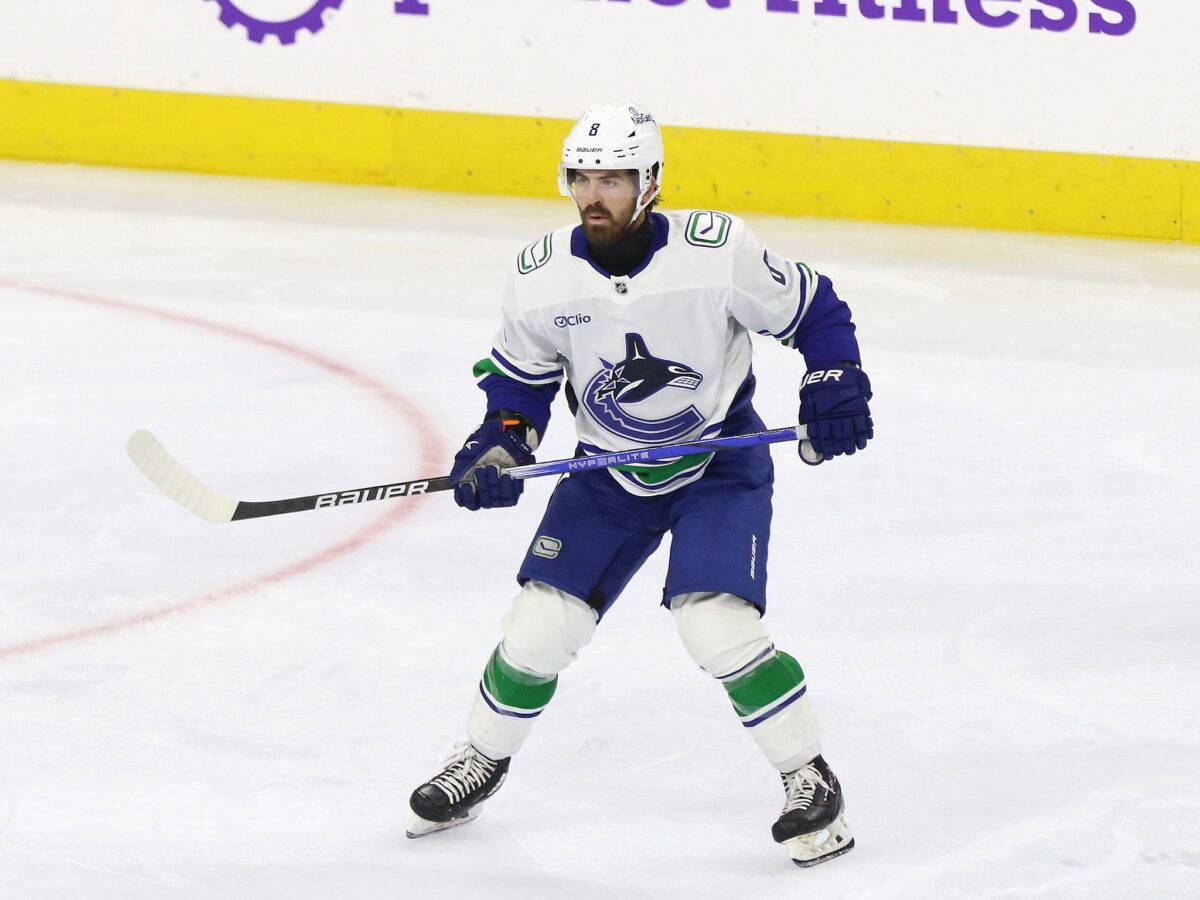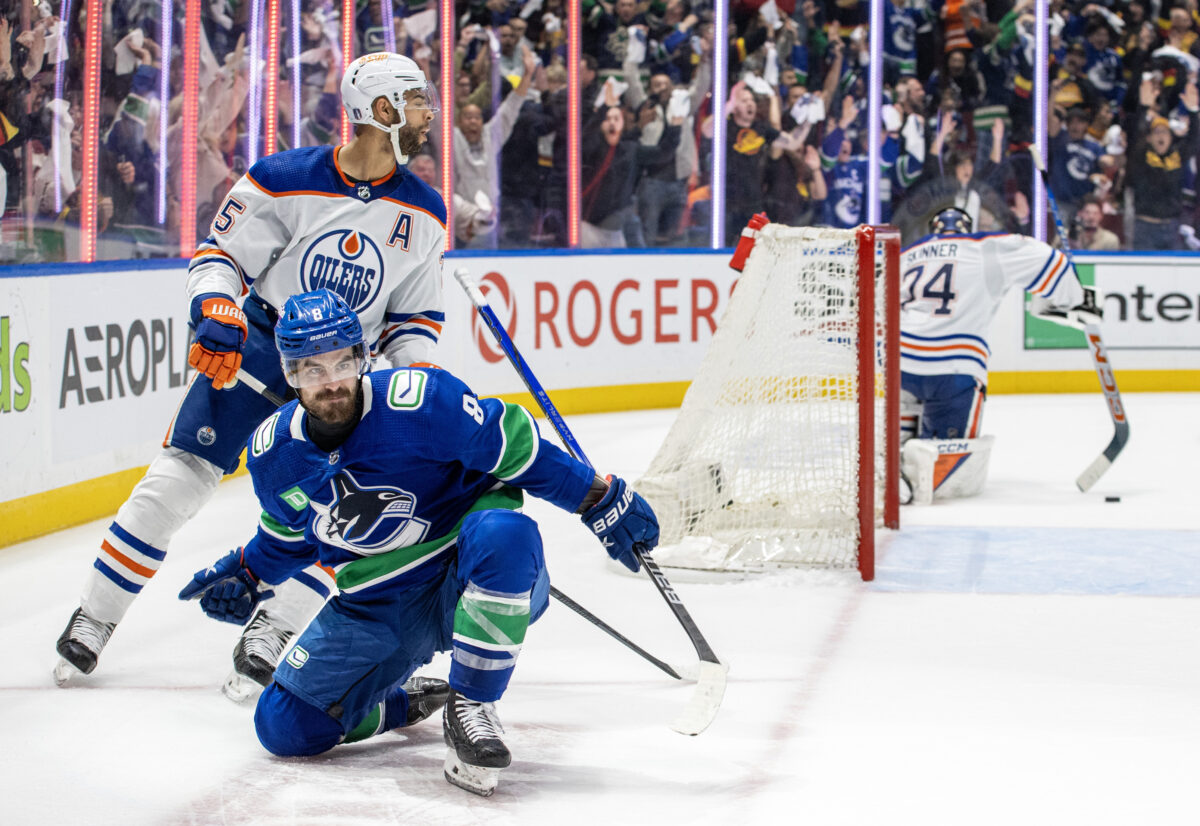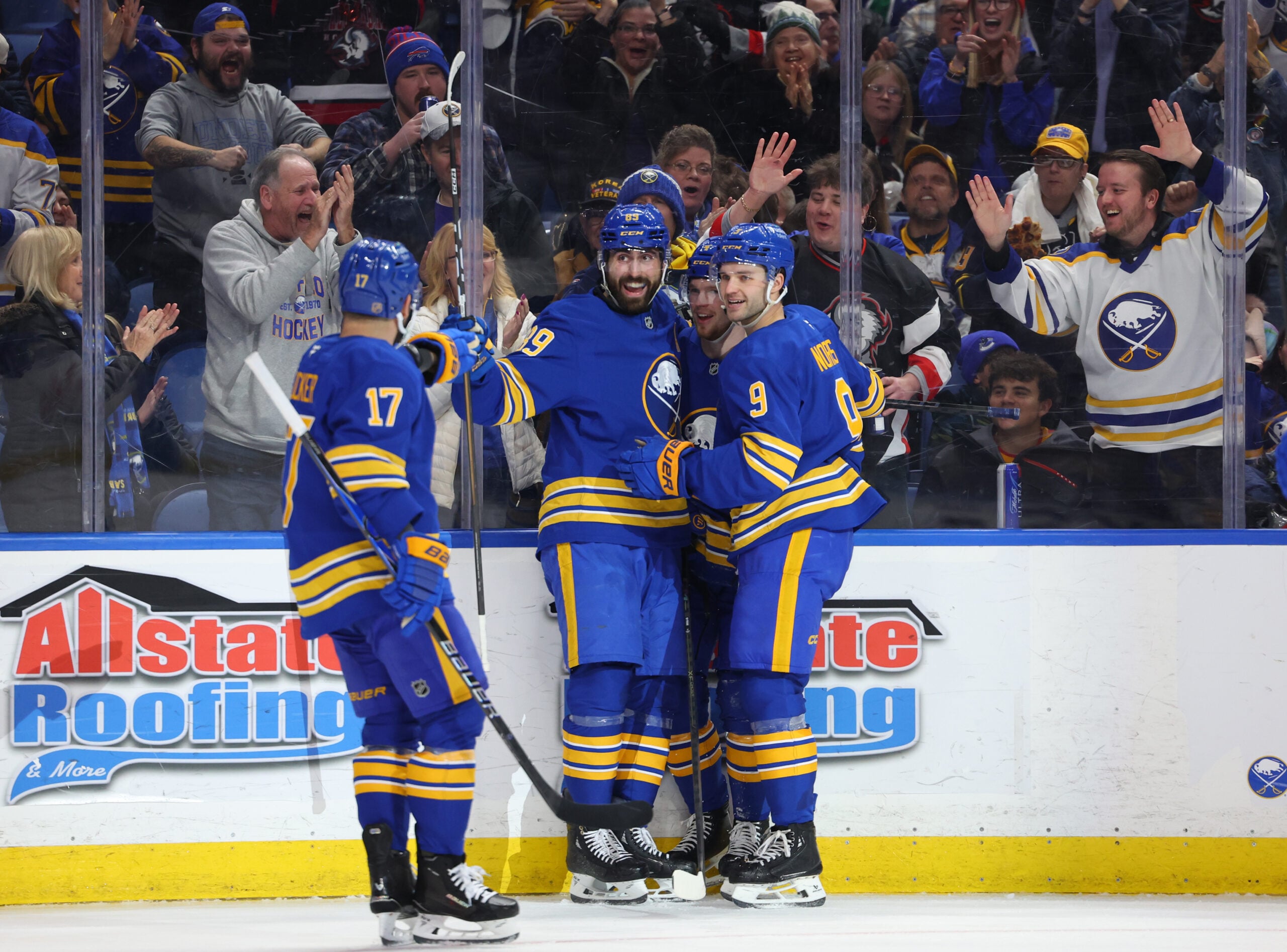Conor Garland doesn’t grab headlines — but season after season, he gives the Vancouver Canucks exactly what they need: consistency, effort, and reliable production. He’s the kind of player who quietly makes a team better. That’s why, instead of floating his name in trade rumours, the Canucks should be working to extend him.
Garland’s Production Speaks for Itself
Since arriving from the Arizona Coyotes in 2021, Garland has done one thing very well: show up and contribute. He’s landed between 46 and 52 points in every season he’s played with Vancouver, including 50 points in 2024–25 (19 goals, 31 assists in 81 games). That consistency is valuable, especially on a team that’s struggled to find middle-six stability in recent years.
Related: Abbotsford’s Lekkerimaki Showing Canucks Why He’s a Top Prospect
But it’s not just about the points. Garland plays a responsible two-way game, finishes his checks, blocks shots, and battles hard. Plus, he’s like the Energizer Bunny; he just never seems to quit working. Last season alone, he registered 171 shots, 49 hits, and 58 blocked shots. He borders on flashy, but he’s solidly in the center of dependable. That kind of effort matters more than ever when building a winning culture.
Trading Garland Doesn’t Add Up
Garland carries a cap hit of just under $5 million. Yes, moving him would free up space. But that only works if the team can replace what he brings, which isn’t easy or cheap. These days, Garland’s salary-cap hit is value for the money.

Some fans compare his situation to Brock Boeser’s, but Boeser put up 73 points in 2023–24 and is now rumoured to be on his way to another team. Garland isn’t at that level, but he also wouldn’t cost as much to keep. And just like the Canucks were patient with Boeser when others wanted him gone, they’d be smart to take a similar approach with Garland.
Related: Peterka, Byram, and the 2C Puzzle: Inside the Canucks’ Offseason Plans
As for trade value? Garland’s steady but not elite production means you’re unlikely to get a significant return — maybe a mid-round pick or a prospect. It’s a low-upside move for a guy already giving you quality minutes.
For the Canucks, Cap Space Doesn’t Automatically Equal Upgrades
It’s easy to say, “just trade him for cap space,” but it’s another thing to turn that space into something useful. Middle-six forwards with 50-point potential and solid work habits don’t grow on trees. You might save a few million, but you could end up plugging that hole with a less effective player at the same price, or overpaying in free agency for someone less reliable.
Garland gives you a known value. His point totals haven’t varied in the four seasons he’s been with the Canucks. That’s rare in today’s NHL, where inconsistency can sink a roster fast.
Garland’s Depth, Experience, and Flexibility Matter
One of Garland’s most underappreciated traits is his versatility. He’s played up and down the lineup and makes it work wherever he plays. He adapts without complaint, whether on the second line or grinding in the bottom six. That flexibility helps coaches manage matchups and injuries over a long season.

He also brings a veteran presence without the ego. As younger forwards like Nils Höglander look to take bigger steps, Garland provides a steadying influence — a guy who plays the right way and sets a standard for effort.
The Bottom Line: Extend Garland, Don’t Replace Him
In a perfect world, every team would be filled with stars. But in the real world, the teams that win or stay competitive do it on the backs of players like Garland. He’s consistent, team-first, and plays with a competitive spirit. His current contract is reasonable, and there’s room to work out an extension that makes sense for both sides.
Related: 3 Abbotsford Canucks In the Running For AHL Playoffs MVP
Unless the Canucks are offered something unexpectedly strong, there’s no good reason to move on from him. Letting him go would create a bigger hole than most people realize.
Garland won’t carry the team, but he helps glue it together. And that kind of glue is something this team desperately needs. If the front office is serious about building something sustainable in Vancouver, keeping him around should be part of that plan.




